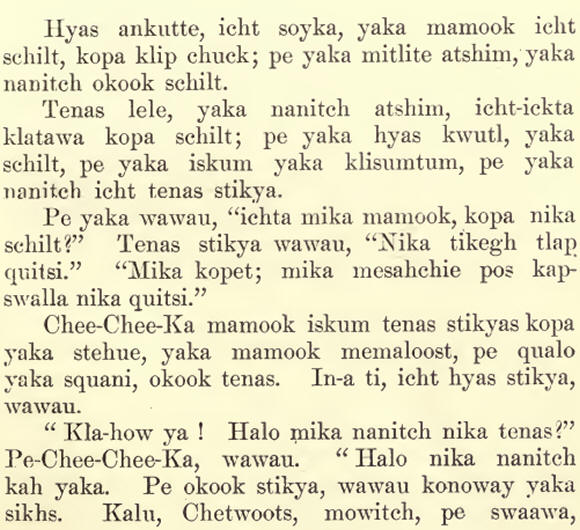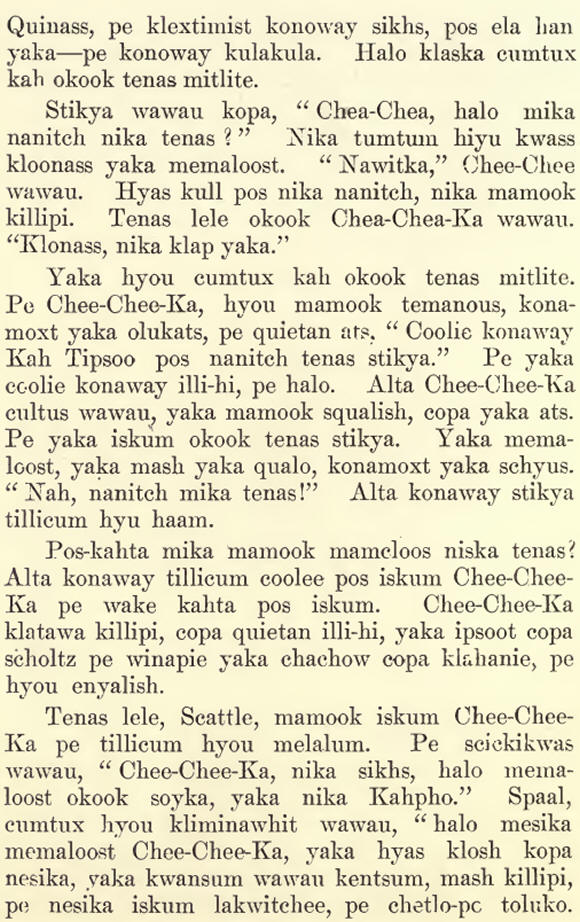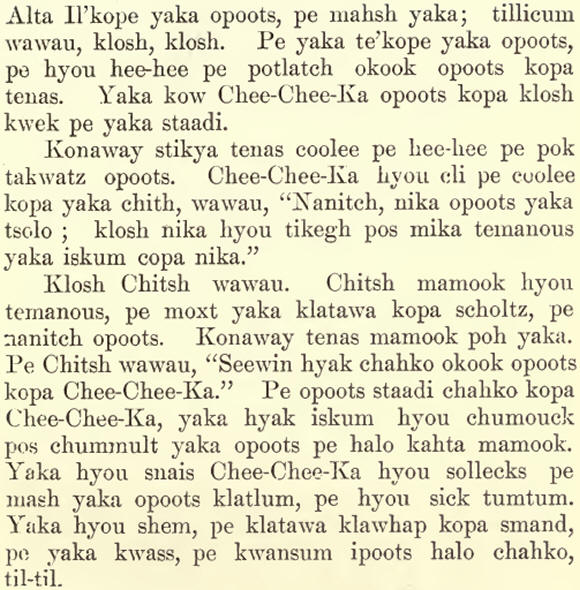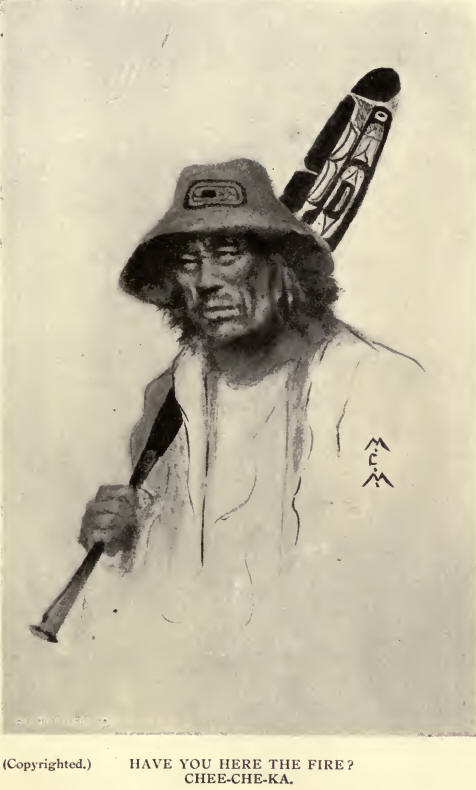|



I now give the
translation of the above story: CHEE-CHE-KA.
Chee-che-ka was once upon a time a man who could change himself into
mink shape. One day he had set his trap in the river and was watching
the stick that held the door open. Presently the stick moved, and he let
down the door and pulled up the trap. Instead of fish he caught a fine
young wolf.
“Now, then, what are you doing in my trap?”
“Oh, I was looking for salmon trout. Please let me go.”
“No, indeed; you have been stealing from me long enough, and now I will
punish you.”
So the poor wolf was killed, the fur and head taken off and stuffed.
By and bye the wolf’s father came down to the river and asked
Chee-che-ka if he had seen his son pass that way.
“No, I have not,” answered Chee-che-ka, telling a lie. So the wolf asked
all his friends, the bears, deer, sea lions, panthers—everyone he asked,
and all the birds. But no one knew where his son was. He asked the
blue-jay to find the child, so this boaster said: “Oh, yes, I will try,
but it will be hard.” So off he flew to look.
Then Chee-che-ka came forward and said: “Perhaps I can find your son.”
“Very well,” said the wolf; “if you bring him to me alive, I will be
your slave.”
So Chee-che-ka began to sing with his sisters, the snakes and mice. They
beat the sticks and sang, and he called his spirits to help. He told his
sisters to go all about the grass and woods, and to pretend to find the
young wolf. Then they came back, empty-handed, and then he, with a great
show of noise, brought out the head and skin, stuffed, of the poor young
wolf.
“Here is your son, Stikya.”
Then the crying and mourning began, and some of the animals made a dash
to catch Chee-che-ka, but

he had turned into a
mink and disappeared down a mouse-hole and ran along their roads and
came up outside. Just then the land-otter caught him, and the animals
all came to hold a court and try him for killing their friend’s son.
After much talking, the panther said in the court:
“Chee-che-ka must die. He has killed our young friend, so must give up
his life.”
The death sentence was pronounced, but the coon and the raven begged to
be heard. The coon said.
“Don’t kill him, for he is my friend.”
The raven, who is a great lawyer and knows well how to tell lies, said:
“Don’t kill him, for he is useful to us; when we go digging clams,
oysters and mussels, he orders the tide to keep away, so that it is dry
for us to walk on. If you kill him there will be no one left to order
the tide water back. If you must punish him, cut off his tail. So, after
much considering, they agreed to cut off his tail. So the tail was cut
off and tied like a hoop, and given to the children to roll about. What
fun they all had out of the tail ! Poor Chee-che-ka ran away to his
grandmother and asked her to see if she could not get back his tail. So
she called her spirits and told them what she wished. So off she and her
grandson went to the place where they were shooting arrows at the hoop.
The spirits rolled the hoop to them, and Chee-che-ka seized it and ran
off with it to try to stick it on again. He put pitch on the end and
stuck it on; but he was so fat that the tail would not stick on, so he
threw it away in great disgust. He ran off to the woods and mountains,
ashamed to show himself any more to people.
He has since then lost the power of becoming a man, and remains a mink. |
